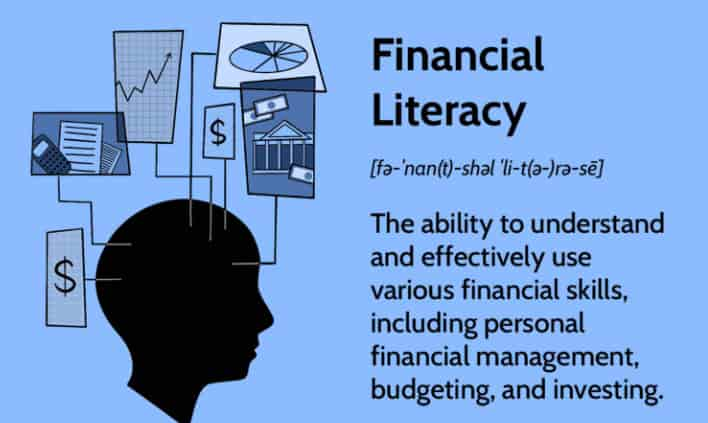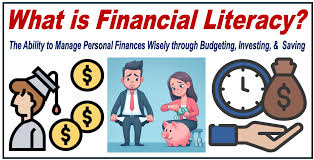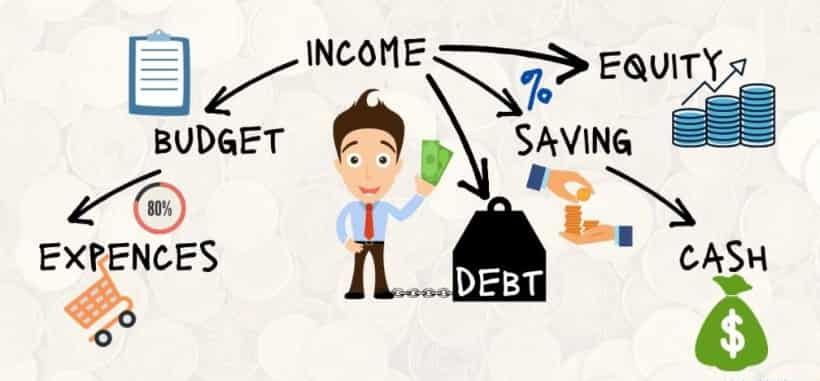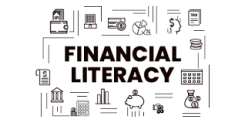Contents
There are some basic concepts in life that are not taught as a subject in schools in most countries, but it is impossible to be successful without mastering them. Just like etiquette, these basic concepts also have an important place in our lives. Sometimes we realize this, and sometimes unfortunately we do not. When we ask what financial literacy is, we understand how deficient we are in this regard. If you know someone who is a banker or a financial sector employee, or if you have worked in these sectors for a while, you will see that people do not even have the opportunity to learn such concepts due to the hustle and bustle of daily life.
By the way we recommend you to read personal finance article first in order to understand financial literacy more effectively.
However, these concepts come across us in every aspect of life. Sometimes when we are shopping at the market, sometimes when we have some extra money, and sometimes when we need credit, we need information about basic information or indicators on financial matters. Generally, we make economic decisions without even realizing it. An expense, a saving moment, or the decision to buy one product instead of another are actually strategic decisions that require economic literacy.

What Is Financial Literacy? Why It is Important?
At this point, we should emphasize again that consumption, investment, savings or economic activities are as much a part of our lives as they are. Just like mathematics or history, teaching basic financial indicators and economic concepts to children from a young age will make significant contributions to the future of that country in the long term. We will discuss the concepts we will talk about here at a level that ordinary people who have not received economics education will use in daily conversations.
At this point;
- Definition of financial literacy
- Basic definitions such as consumption, savings and investment
- What is a budget and how should it be done
- What is credit, how to increase credit score
- How should retirement planning be done
- The effects of technological developments on finance and economy
We will talk about topics such as.

Key Definitions and Components of Financial Literacy
Although the details vary from person to person, what is financial literacy basically defined as knowing the basic concepts in financial literature and being able to make financial decisions by engaging in economic activities with this awareness. For example, when you go to a bank to take out a loan, you should ask for the interest rate, annual cost or total return amount of this loan. When the banker asks you why you took out this loan, instead of saying “for need”, you are expected to explain the details of that need or investment.
Also, if you do not ask about the cost of the loan or life insurance at the beginning, the expenses withdrawn from your account after using the loan will bother you. In order to establish an awareness regarding financial literacy, it is useful to know some basic concepts first. We will briefly touch on these concepts now.
Consumption: We call the part of our income that is spent consumption. Here, it should be noted that people without income also spend and that it does not necessarily have to be income for it to be consumption. In other words, if a person is a student, for example, they can take someone else’s income as a donation or pocket money and consume it. On the other hand, a person who does not have enough income can still spend on consumption by borrowing from a bank or a friend. The main issue here is to know that the amount spent is consumption rather than income.
Consumption is actually the beginning, or the trigger, of the concept of production. Production cannot be done without consumption.

Saving and Investment Topics are Crucial!
Savings: We call the unspent part of income savings. In other words, the moment a person does not spend their income, they save. This period can be 1 day or 1 hour. In other words, let’s say your salary was deposited today and you spent half of it. Even if you spend the remaining half the next day, you will still have saved for one day. We explain basic mathematics as follows: Income = Consumption + Savings
If you do not spend the savings later and especially if you live in an inflationary country, you should invest so that this savings amount does not melt away. Otherwise, after a while, you will face the fact that the money you have in your hand will not be enough for the things you used to buy. So let’s move on to the next definition.
Investment: We mentioned that we save the part of our income or debt or credit that we do not spend, that is, that we do not consume. We invest so that these savings do not melt away against inflation over time and maintain their value. The purpose of this investment is to obtain returns. The investments we are talking about here are not investments made by the public or large companies. They are investments made for individual purposes and to evaluate savings. After all, when our subject is what is financial literacy, we should provide basic information without expanding the scope too much.
Here, it is possible to protect or add the money we have by investing in time deposits, stock exchanges or treasury bonds.
Interest Rates and the Inflation Dilemma

Interest: Interest is the simplest form of the cost of using money. Just as you receive a rental fee when you rent out your house, you also receive interest as a rental fee when you rent out the money you save to someone. The interest mentioned here is an official interest rate. Naturally, if you live in a country with high interest rates, it is normal to want to evaluate your savings with high interest.
The point to look at here is whether the interest given by banks is higher than the inflation rate in the country. If the interest given to deposits is lower than the inflation rate, your money will continue to melt in real terms. By the way fighting inflation is also crucial for governments
Budget and Credit Issue: A budget is a table that includes income and expenses and is desired to be balanced. Just like countries, individuals also have budgets and if incomes do not cover expenses, individuals will also get into debt. In today’s world, the most reasonable form of this borrowing is bank loans. Banks offer credit cards or consumer loans to individuals under the name of individual loans. Individuals also use these loans if they find the interest rates or expenses appropriate. In the meantime, we would like to give brief information about credit scores.
When you apply to the bank for a loan, banks track your past payment performance in the system and respond to your loan application based on your credit score. At this point, if you delay your credit card or consumer loan payments even for one day, your credit score will drop.
Saving for Short- and Long-Term Goals

In the accelerating digital transformation era, banks and financial institutions are also becoming digital. Recently, financial technology companies called fintech, which you have heard of frequently, have become rivals to banks and are cornering large banks in competition with applications such as open banking and service banking. In this sense, FinTechs who develop mobile applications provide loans and perform financial transactions much cheaper than banks. We recommend that you research these new generation technology-based financial companies.
On the other hand, it would be logical to open an individual retirement account for the future, that is, retirement, in your young and productive years. It is possible to go to the branches of banks and get information from the existing retirement company subsidies of many banks on this subject. If you know these definitions and can answer the question of what is financial literacy, you will make healthier financial decisions.
